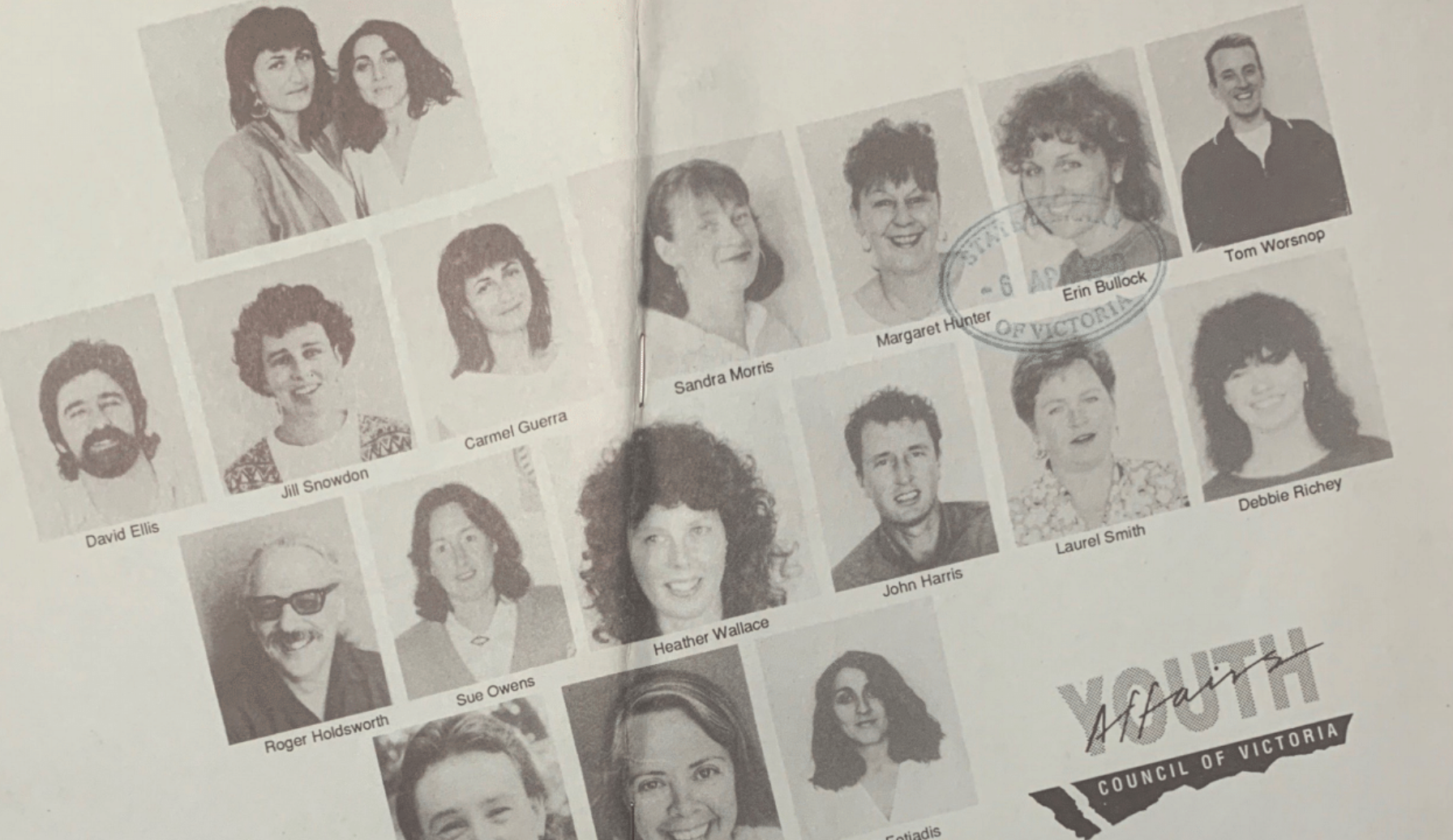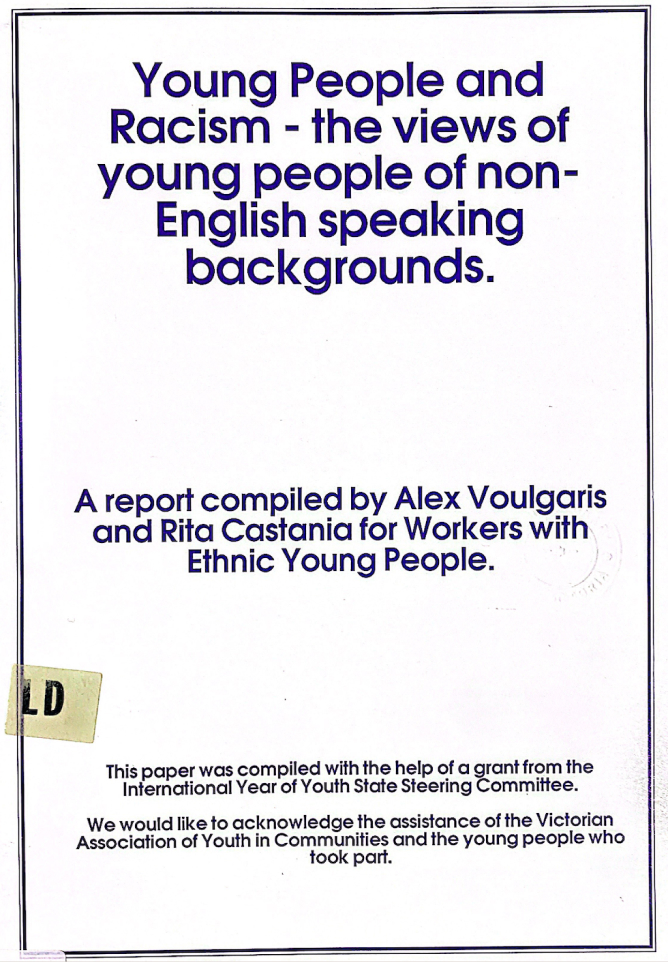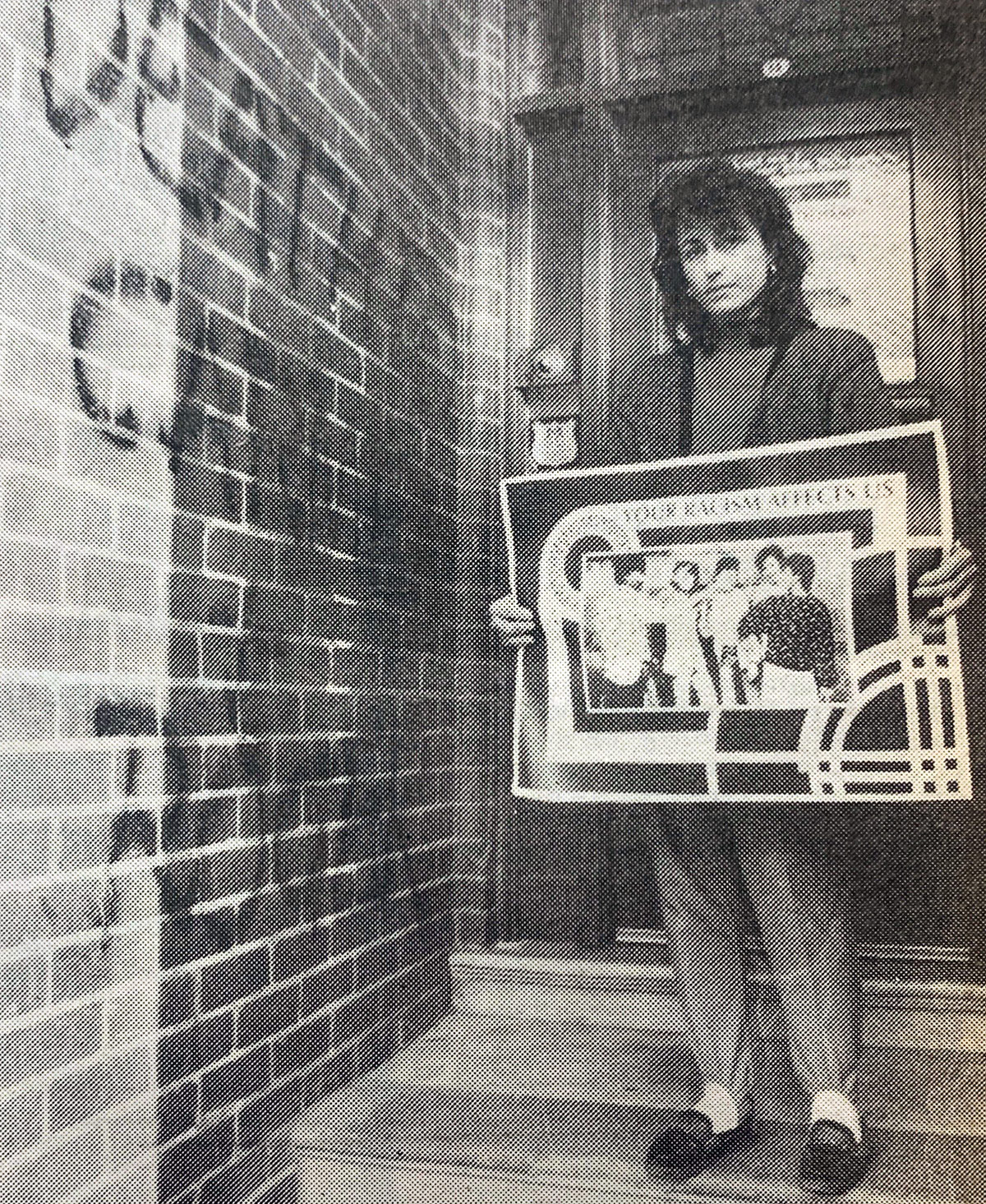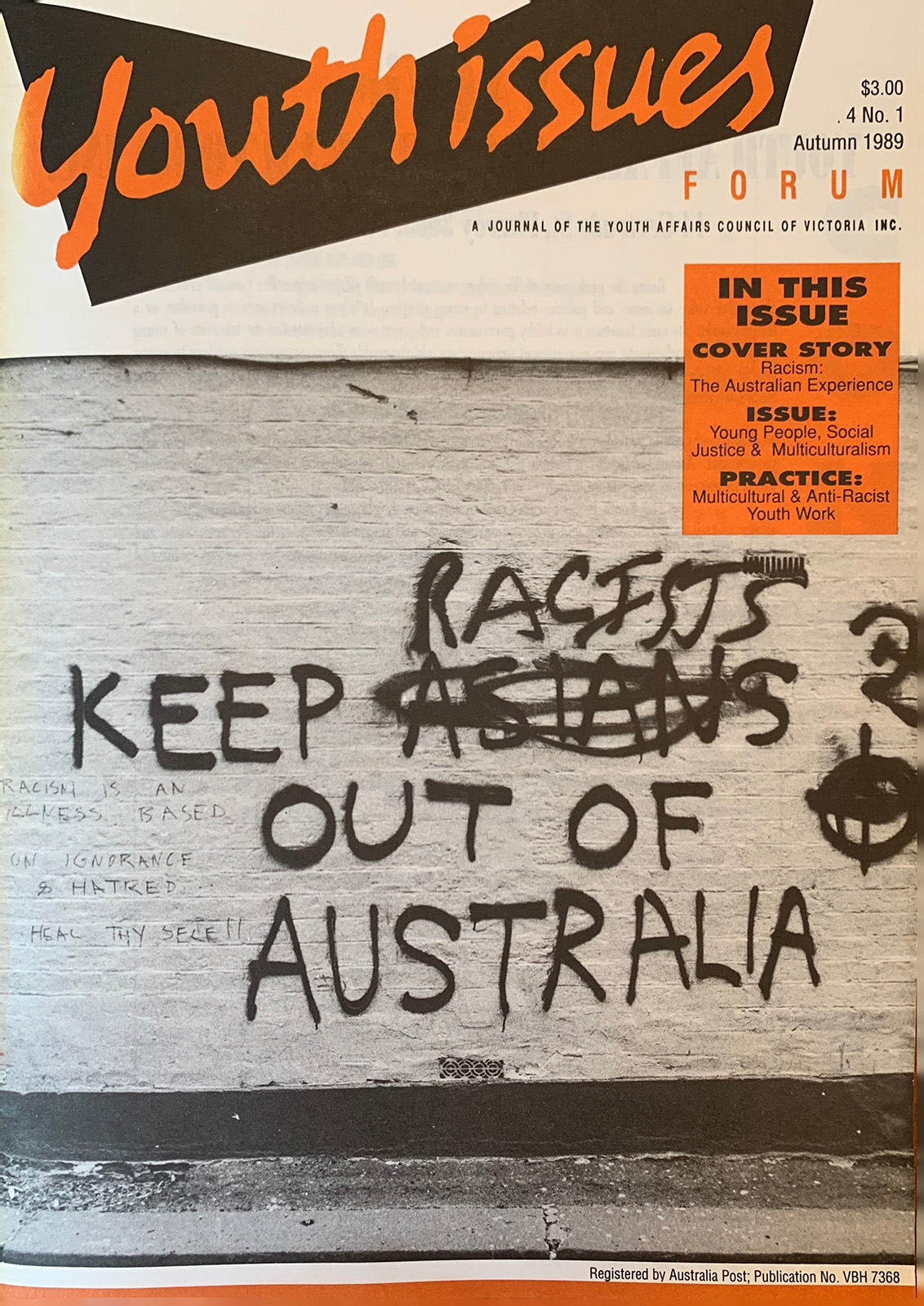In 1983, a group of workers with young people formed a network with the support of the Ethnic Communities Council of Victoria to work collaboratively to address their concern that young people from culturally diverse communities, and their families, were facing discrimination and barriers to services and opportunities. Calling themselves the Workers with Ethnic Young People, they began working collaboratively to advocate for change, develop a professional support network and explore new youth work approaches.
1980s
The Decade that Started it All

1983
Workers with Ethnic Young People
1983
The Workers with Ethnic Young People (WWEYP) network is formed.
“Our broadly stated belief is that: All young people should be ensured of adequate and relevant support systems, within mainstream society, to enable them to develop to their fullest potential.”
Workers with Ethnic Youth People report ‘A Position Paper of Perceived Needs of Ethnic Young People by Workers in the Field’
1984
relevant support systems
1984
The concerns and aspirations of Workers with Ethnic Young People are raised at a national level.
In 1984, the now formalised network of ‘Workers with Ethnic Young People’ (WWEYP) developed ‘A position paper of perceived needs of ethnic young people by workers in the field’ and presented it to the Federation of Ethnic Communities Council of Australia.1 In it, they asserted young people’s rights to ‘adequate and relevant support systems’, ‘to maintain and develop their cultural traditions’ and to education, family life, social and recreational life, employment and the provision of services.2
1Workers with Ethnic Young People. (1984) A Position Paper of Perceived Needs of Ethnic Young People by Workers in the Field; Prepared by Workers with Ethnic Young People, a sub-committee of the Ethnic Communities’ Council; Federation of Ethnic Communities Council of Australia, (1984) Proceedings of the First National Congress, Sixth National Conference and Annual General Meeting of the Federation of Ethnic Communities’ Council of Australia Inc. University of Melbourne – 3rd-9th December 1984. FECCA, Melbourne.
2Hinz, B. (2009) Many Hopes, One Dream: The story of the Ethnic Communities Council of Victoria. Australian Scholarly Publishing, Kew. pp. 56-7.pp. 56-7.
1987
a voice on racism
1987
Young people have a voice on racism.
In 1987, Workers with Ethnic Young People released the report ‘Young People and Racism – the views of young people of non-English speaking backgrounds’ bringing young people’s experiences and perspectives into the realm of public debate and understanding about racism. It’s inclusion of young people’s own voices in describing their experiences of racism at school as well as many other settings attracted the attention of the media.
 Cover of 'Young People and Racism - the views of young people of non-English speaking backgrounds.' (1987) By Alexandra Voulgaris, Rita Castania and Workers with Ethnic Young People.
Cover of 'Young People and Racism - the views of young people of non-English speaking backgrounds.' (1987) By Alexandra Voulgaris, Rita Castania and Workers with Ethnic Young People.
1988
A funded Ethnic Youth Issues Network
1988
A funded Ethnic Youth Issues Network.
In 1988, after five years of advocacy by the network, the Victorian Government provided funding to the Youth Affairs Council of Victoria (the youth sector peak body) to auspice the Ethnic Youth Issues Network. This provided a solid structure from which the work of WWEYP could be built upon and Carmel Guerra was appointed as the first Project Officer of the network.
1989
threatening graffiti vandalism
1989
Staff targeted through threatening graffiti.
The Ethnic Youth Issues Network’s continued work in highlighting young people’s experiences of racism drew not only the attention of the media, but also of an extreme right-wing group who wrote threatening letters to the organisation. In June 1989, following the publication of a youth journal focused on racism, Carmel Guerra and Youth Affairs Council staff member Roger Holdsworth were the target of a death threat graffitied on the office building wall by the front door.
 Image of Carmel Guerra beside graffiti as appeared in Talbot D. 1989. ‘Death Threats Against Youth Workers Spark Anger and Concern’, Coburg Courier, 20 June 1989, p1.
Image of Carmel Guerra beside graffiti as appeared in Talbot D. 1989. ‘Death Threats Against Youth Workers Spark Anger and Concern’, Coburg Courier, 20 June 1989, p1.
 Cover of Youth Issues Forum, Autumn 1989 Vol. 4 No. 1, Youth Affairs Council of Victoria
Cover of Youth Issues Forum, Autumn 1989 Vol. 4 No. 1, Youth Affairs Council of Victoria
